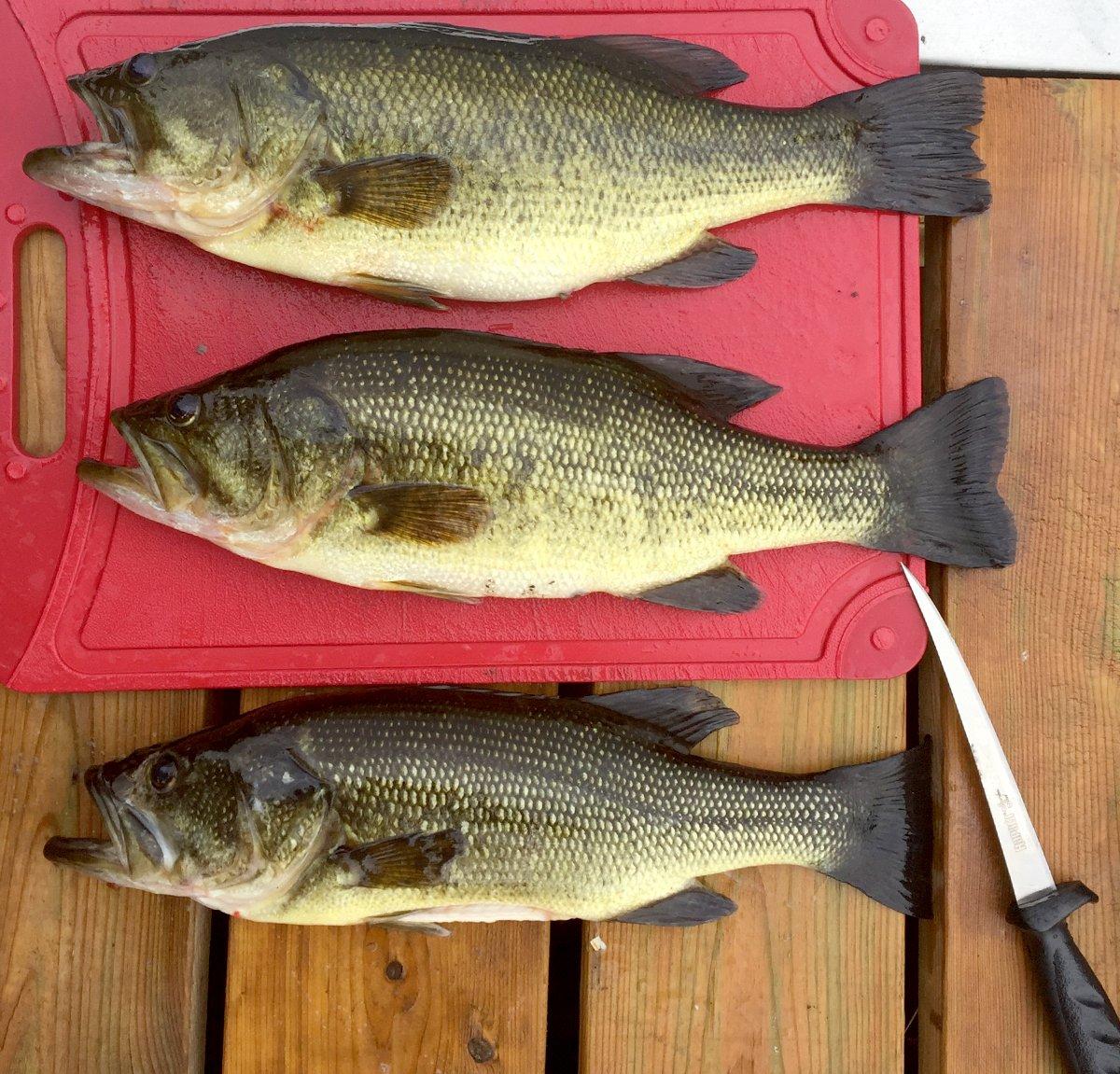Smallmouth bass are good to eat, offering a mild, nutty flavor. They are popular among anglers and food enthusiasts.
Smallmouth bass, a freshwater fish, are highly sought after for their taste and texture. These fish have a firm, white flesh that cooks well in various recipes. Anglers often enjoy grilling, baking, or frying smallmouth bass to bring out their delicious flavor.
This fish is not only tasty but also offers nutritional benefits, including high protein and low fat content. Smallmouth bass are commonly found in rivers, lakes, and streams across North America. They thrive in clean, clear waters, making them a reliable choice for a healthy meal. Their popularity continues to grow among both fishermen and culinary experts.
Introduction To Smallmouth Bass
Smallmouth Bass is a popular fish among anglers. People often ask if it is good to eat. This blog will explore the Smallmouth Bass.
What Is Smallmouth Bass?
The Smallmouth Bass is a freshwater fish. It belongs to the sunfish family. It is known for its fight and flavor.
Smallmouth Bass has a greenish-brown body. It has vertical stripes on its sides. The fish is usually 12-16 inches long. Some grow up to 20 inches.
Anglers love catching Smallmouth Bass. It provides a good challenge. It also tastes great on the dinner table.
Habitat And Distribution
Smallmouth Bass thrives in clear and cool waters. It prefers rivers, lakes, and reservoirs.
The fish is native to North America. You can find it in the Great Lakes region. It also inhabits the Mississippi River basin.
Smallmouth Bass prefers rocky areas. It hides near submerged logs and vegetation. It feeds on crayfish, insects, and smaller fish.

Credit: www.reddit.com
Nutritional Benefits
Smallmouth bass are not just fun to catch, they are also healthy to eat. This fish offers a variety of nutritional benefits that contribute to a balanced diet. Let’s explore the key nutrients found in smallmouth bass.
Protein Content
Smallmouth bass are an excellent source of protein, essential for muscle growth and repair. A 3-ounce serving of smallmouth bass provides about 20 grams of protein.
This high-protein content helps in building and maintaining muscle mass. It also plays a crucial role in other bodily functions.
Vitamins And Minerals
Smallmouth bass are rich in essential vitamins and minerals, which are important for overall health.
- Vitamin B12: Supports nerve function and red blood cell production.
- Vitamin D: Promotes bone health and immune system function.
- Iron: Crucial for oxygen transport in the blood.
- Magnesium: Helps in muscle and nerve function.
- Selenium: Acts as an antioxidant, protecting cells from damage.
Including smallmouth bass in your diet ensures you get these vital nutrients, contributing to better health and well-being.
| Vitamin/Mineral | Benefit |
|---|---|
| Vitamin B12 | Supports nerve and blood cell health |
| Vitamin D | Boosts bone and immune health |
| Iron | Essential for blood oxygen transport |
| Magnesium | Supports muscle and nerve function |
| Selenium | Protects cells from damage |
Adding smallmouth bass to your meals is a tasty way to get these important nutrients. Enjoy the health benefits while savoring the delicious flavor of this nutritious fish.
Taste And Texture
Smallmouth bass are popular among anglers. But, are they good to eat? Let’s explore the taste and texture of smallmouth bass. This will help you decide if they are worth adding to your dinner table.
Flavor Profile
Smallmouth bass have a mild flavor. Their taste is not too strong. This makes them a favorite among people who like fish. They do not have a fishy taste. The flavor is clean and fresh. This makes them easy to season with various herbs and spices.
Here are some common flavor notes of smallmouth bass:
- Mild
- Clean
- Fresh
You can grill, bake, or fry them. Each method brings out different flavors. Smallmouth bass also pairs well with lemon and garlic.
Meat Texture
The meat texture of smallmouth bass is firm and flaky. It holds up well in various cooking methods. This makes them versatile for many recipes.
Here is a quick breakdown of their texture:
| Characteristic | Description |
|---|---|
| Firmness | Firm |
| Flakiness | Flaky |
| Moisture | Moderate |
The firm texture makes smallmouth bass ideal for grilling. It does not fall apart easily. The flaky nature makes it pleasant to eat. You will enjoy the tender bites.
Smallmouth bass meat is also moderately moist. It is not dry, making it enjoyable in every bite.
Cooking Methods
Smallmouth bass are not only fun to catch, but they are also delicious. Knowing the best cooking methods can enhance the taste of this fish. Here are some ways to cook smallmouth bass to perfection.
Grilling
Grilling is a popular way to cook smallmouth bass. It gives the fish a smoky flavor. Here is how you can do it:
- Preheat your grill to medium heat.
- Season the fish with salt, pepper, and olive oil.
- Place the fish on the grill.
- Cook for 4-5 minutes on each side.
- Ensure the fish is opaque and flakes easily with a fork.
Grilling gives the fish a crispy texture. It keeps the inside tender and juicy.
Pan-frying
Pan-frying is another excellent method for cooking smallmouth bass. It is quick and easy. Follow these steps:
- Heat a skillet over medium-high heat.
- Add a tablespoon of butter or olive oil.
- Season the fish with your favorite spices.
- Place the fish in the skillet.
- Cook for 3-4 minutes on each side.
- Ensure the fish is golden brown and flakes with a fork.
Pan-frying gives the fish a delightful crust. It locks in the flavors.
Baking
Baking is a healthy way to cook smallmouth bass. It requires minimal oil and keeps the fish moist. Follow these simple steps:
- Preheat your oven to 375°F (190°C).
- Season the fish with salt, pepper, and lemon juice.
- Place the fish in a baking dish.
- Add a few slices of lemon on top.
- Cover the dish with foil.
- Bake for 20-25 minutes.
- Check if the fish flakes easily with a fork.
Baking preserves the natural flavors of the fish. It is a simple and healthy method.
Popular Recipes
Smallmouth Bass is a versatile fish. It can be cooked in many ways. Try these popular recipes for a delicious meal.
Smallmouth Bass Tacos
Smallmouth Bass Tacos are a tasty treat. Fresh fish, tangy slaw, and a squeeze of lime make them special.
- 1 lb Smallmouth Bass fillets
- 2 tbsp olive oil
- Salt and pepper to taste
- 8 small tortillas
- 1 cup shredded cabbage
- 1/2 cup diced tomatoes
- 1/4 cup chopped cilantro
- 1 lime, cut into wedges
Cook the bass fillets in olive oil. Season with salt and pepper. Fill tortillas with fish, cabbage, tomatoes, and cilantro. Serve with lime wedges.
Lemon Garlic Bass
Lemon Garlic Bass is simple yet flavorful. The lemon and garlic enhance the fish’s natural taste.
- 4 Smallmouth Bass fillets
- 2 lemons, sliced
- 4 cloves garlic, minced
- 2 tbsp butter
- Salt and pepper to taste
- Chopped parsley for garnish
Preheat oven to 375°F. Place bass fillets on a baking sheet. Top with lemon slices and garlic. Dot with butter. Season with salt and pepper. Bake for 20 minutes. Garnish with parsley.
Bass Chowder
Bass Chowder is hearty and warm. Perfect for a cozy meal.
- 1 lb Smallmouth Bass, cubed
- 4 cups fish stock
- 2 cups diced potatoes
- 1 cup chopped onions
- 1 cup diced carrots
- 1 cup corn kernels
- 1 cup heavy cream
- Salt and pepper to taste
- Chopped chives for garnish
In a large pot, simmer fish stock, potatoes, onions, and carrots. Cook until vegetables are tender. Add corn and bass cubes. Simmer for 10 minutes. Stir in heavy cream. Season with salt and pepper. Garnish with chives.
Fishing And Sustainability
Fishing for smallmouth bass offers both sport and food. To enjoy it responsibly, we need to follow sustainable practices. This helps maintain fish populations for future generations.
Best Fishing Practices
Adopting the best fishing practices ensures a healthy ecosystem. Use the following tips for a responsible fishing experience:
- Catch and Release: Release smaller fish to let them grow.
- Use Barbless Hooks: Barbless hooks reduce injury to fish.
- Limit Your Catch: Only keep what you plan to eat.
- Follow Local Regulations: Stay informed about fishing rules.
- Handle Fish Carefully: Wet your hands before touching fish.
Sustainable Harvesting
Sustainable harvesting ensures that fishing remains viable. Follow these guidelines for harvesting smallmouth bass:
| Guideline | Explanation |
|---|---|
| Size Limits | Keep fish within size limits set by local authorities. |
| Seasonal Restrictions | Fish only during open seasons to avoid breeding periods. |
| Bag Limits | Adhere to the daily and possession limits for smallmouth bass. |
| Selective Harvesting | Prefer catching older, larger fish for eating. |
By following these practices, we can enjoy smallmouth bass without harming their populations. Sustainable fishing ensures that our waters remain bountiful for years to come.
Health Considerations
When considering the consumption of smallmouth bass, health considerations are crucial. This section will explore key aspects such as mercury levels and allergen information to help you make an informed decision.
Mercury Levels
Mercury in fish is a common health concern. Smallmouth bass can contain mercury. The levels depend on the water body they inhabit. Eating fish with high mercury can affect health. Mercury exposure can harm the nervous system, especially in children and pregnant women.
Avoid eating large quantities of smallmouth bass. Opt for smaller fish to minimize mercury intake. Small fish usually have lower mercury levels.
| Fish Size | Mercury Level |
|---|---|
| Small | Low |
| Medium | Moderate |
| Large | High |
Allergen Information
Fish allergies can be severe. Smallmouth bass can trigger allergic reactions. Symptoms include hives, swelling, and difficulty breathing. If you have a fish allergy, avoid eating smallmouth bass.
Consult a doctor if you suspect a fish allergy. They can provide an allergy test. This helps identify if smallmouth bass is safe for you.
Common allergens in fish:
- Parvalbumin
- Omega-3 fatty acids
- Gelatin

Credit: realtree.com
Comparing To Other Fish
When comparing the taste and texture of smallmouth bass to other fish, it’s essential to consider various factors. This section will provide a detailed comparison of smallmouth bass with largemouth bass and trout. These comparisons will help you decide if smallmouth bass is a good choice for your next meal.
Versus Largemouth Bass
Smallmouth bass and largemouth bass are both popular freshwater fish. They both have firm, white flesh, but their flavors and textures differ.
- Flavor: Smallmouth bass has a more delicate, sweet flavor. Largemouth bass has a stronger, fishier taste.
- Texture: Smallmouth bass offers a firmer texture. Largemouth bass is softer and sometimes mushy.
- Preparation: Smallmouth bass is ideal for grilling or pan-frying. Largemouth bass is better suited for baking or deep-frying.
Versus Trout
Trout is another popular freshwater fish, known for its mild flavor. Comparing smallmouth bass to trout reveals some interesting differences.
- Flavor: Smallmouth bass has a sweeter, more pronounced flavor. Trout has a mild, slightly nutty taste.
- Texture: Smallmouth bass has firmer flesh. Trout is more delicate and flaky.
- Preparation: Smallmouth bass is great for grilling or pan-frying. Trout shines when smoked or baked.
Here is a comparison table to summarize the differences:
| Fish Type | Flavor | Texture | Best Preparation |
|---|---|---|---|
| Smallmouth Bass | Sweet, delicate | Firm | Grilling, pan-frying |
| Largemouth Bass | Fishier | Softer, sometimes mushy | Baking, deep-frying |
| Trout | Mild, nutty | Delicate, flaky | Smoking, baking |

Credit: www.youtube.com
Frequently Asked Questions
Are Smallmouth Bass Safe To Eat?
Yes, smallmouth bass are safe to eat. They are a popular choice among anglers. Always ensure they are cooked properly.
What Does Smallmouth Bass Taste Like?
Smallmouth bass has a mild flavor with a firm texture. It’s often described as having a slightly sweet taste.
How Should I Cook Smallmouth Bass?
Smallmouth bass can be grilled, baked, or fried. Marinate it for extra flavor. Cook until the flesh is opaque.
Are Smallmouth Bass Healthy?
Yes, smallmouth bass are healthy. They are low in fat and high in protein. They also contain omega-3 fatty acids.
Conclusion
Smallmouth bass are a tasty and nutritious choice for anglers and fish enthusiasts alike. They offer a delightful flavor and versatile cooking options. By choosing smallmouth bass, you enjoy a sustainable and healthy meal. So, next time you catch one, consider bringing it home for a delicious feast.

